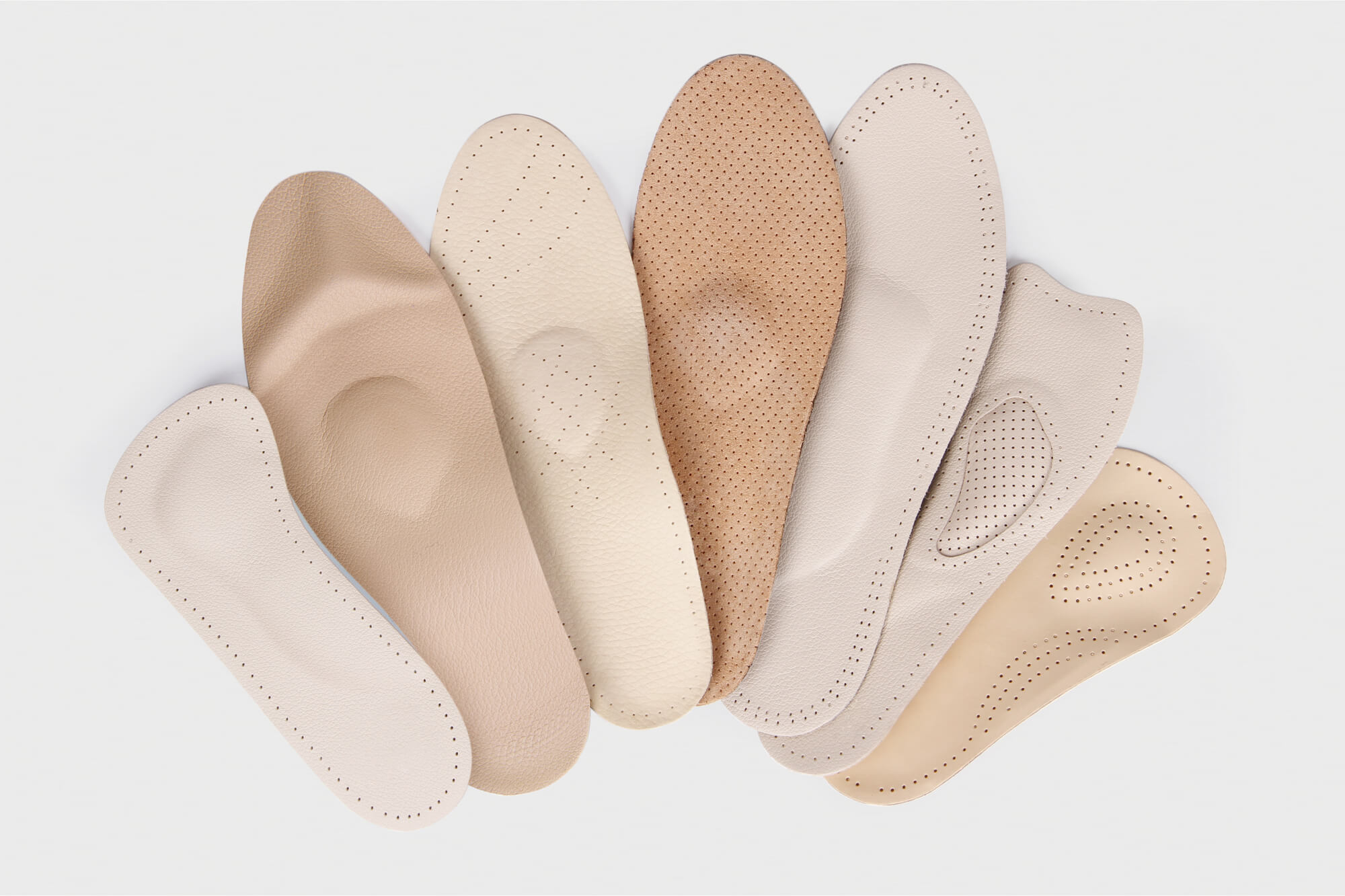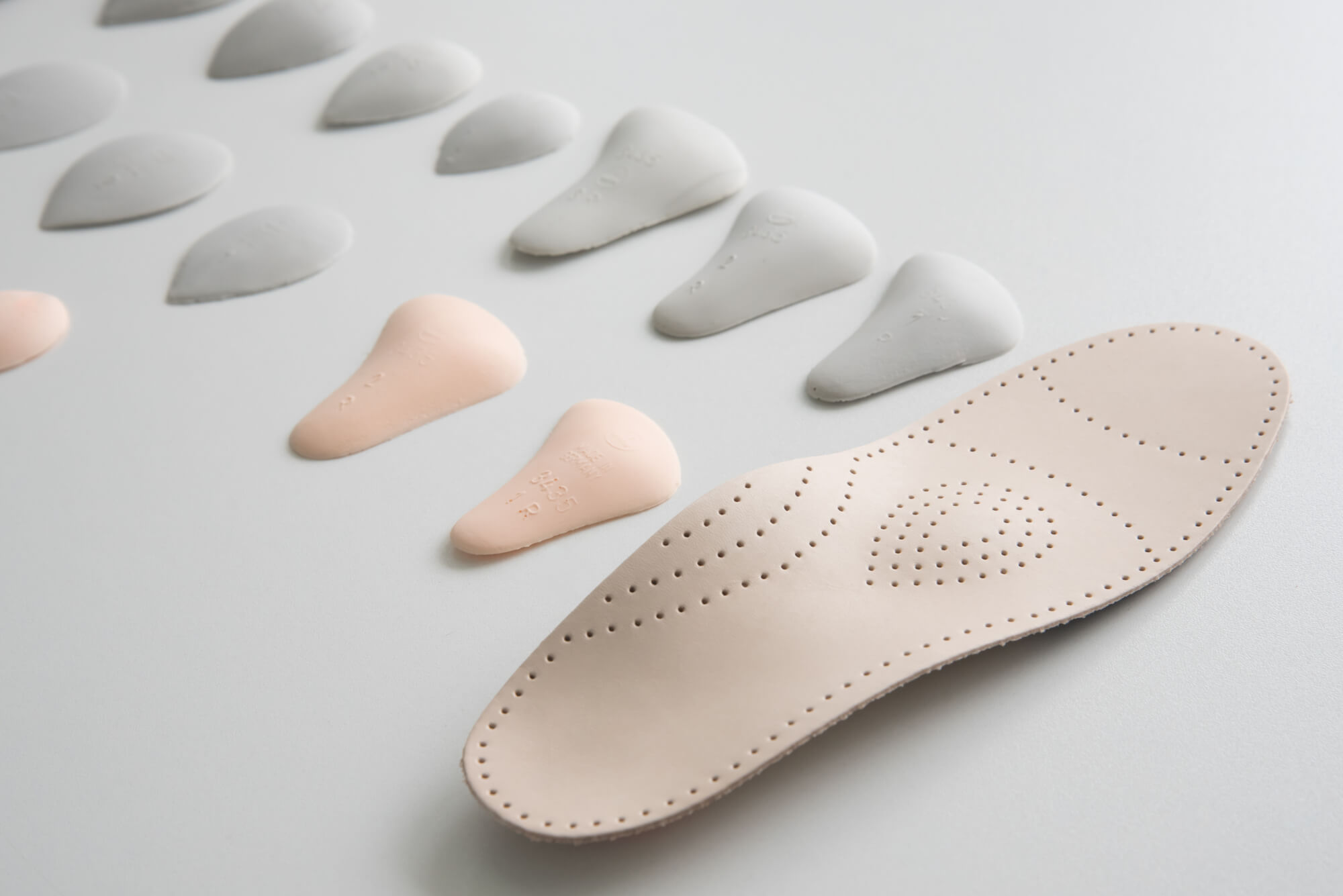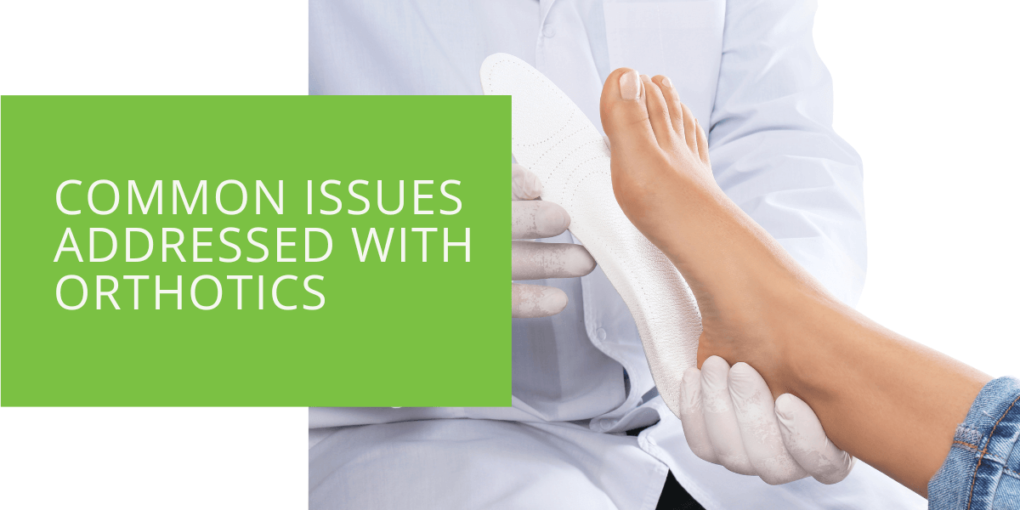Common Issues Addressed with Orthotics
Are you tired of living with foot pain and discomfort? If so, you're not alone. Millions of people worldwide struggle with foot problems that hinder their ability to perform daily activities and enjoy life to the fullest. Fortunately, there's a solution that can help: orthotics.
Orthotics are custom-made insoles that provide support and cushioning to your feet, helping to alleviate pain and improve your overall foot health. Orthotics can offer an effective solution if you suffer from plantar fasciitis, flat feet, or other common foot problems. In this comprehensive guide, we'll delve into the various foot problems that orthotics can address, the benefits of custom orthotics versus over-the-counter options, and how to properly care for your orthotics to ensure they last as long as possible. So, if you're ready to take the first step towards healthier, pain-free feet, keep reading!
Key Takeaways
- Orthotics, including custom orthotics, offer personalized solutions to common foot problems, providing support, cushioning, and pain relief.
- Podiatrists play a crucial role in diagnosing foot issues and recommending the most suitable orthotic interventions based on individual needs.
- Choosing the right orthotic, guided by a podiatrist's expertise, is essential for effectively addressing specific foot problems and improving overall foot health.
Understanding Orthotics
What Are Orthotics?
Orthotics are specialized devices that alleviate foot problems by providing support, cushioning, and stability. These devices can be custom-made to fit your unique foot shape or purchased as off-the-shelf inserts. They play a pivotal role in podiatric care by addressing many common foot problems.
Orthotics are not just one-size-fits-all solutions. Custom orthotics are crafted to match the contours of your feet precisely. This personalization ensures that your orthotics provide optimal support and comfort, targeting your foot issues.
Types of Orthotics
Orthotics come in various forms, including insoles, inserts, and custom orthotics. The choice of orthotics depends on your specific foot problem and the recommendation of your podiatrist, who will assess your condition and determine the best option for you.
While off-the-shelf inserts are readily available and may offer some relief, custom orthotics are often the preferred choice for individuals with chronic or severe foot problems. These personalized orthotics address your unique issues and provide superior support and comfort.
Arch-Related Problems
Flat Feet
Flat feet, or fallen arches, occur when the arches of your feet collapse, causing the entire sole to touch the ground. This condition can result in foot pain and discomfort. Orthotics with proper arch support can help realign your foot, distribute pressure more evenly, and alleviate pain.
Flat feet can cause an inward rolling of the feet when walking or standing, leading to strain on the arches and discomfort. Orthotics designed to provide arch support help maintain the natural arch shape, reducing the inward roll and providing better stability.
High Arches
Conversely, high arches can also lead to foot problems. People with high arches may experience excessive pressure on the ball and heel of the foot, resulting in pain. Orthotics can provide the necessary cushioning and support to relieve this pressure, reducing the risk of discomfort.
High arches can cause your feet to supinate or roll outward when walking, which can strain the outer edges of your feet. Orthotics with proper arch support and cushioning can help distribute the weight more evenly, reducing the risk of pain and discomfort associated with high arches.

Heel and Ankle Conditions
Achilles Tendonitis
Achilles tendonitis is a common condition characterized by inflammation of the Achilles tendon, often leading to heel pain. Orthotics can help by providing additional support to the heel, reducing strain on the Achilles tendon, and allowing it to heal effectively.
Achilles tendonitis is often caused by repetitive strain and overuse of the Achilles tendon, such as in sports or intense physical activities. Orthotics designed to cushion the heel and provide support can alleviate the stress on the tendon, promoting healing and pain relief.
Plantar Fasciitis
Plantar fasciitis is one of the most prevalent causes of heel pain. It occurs when the plantar fascia, a thick band of tissue supporting the foot arch, becomes inflamed. Orthotics designed to support the arch and cushion the heel can significantly alleviate pain and discomfort associated with plantar fasciitis.
The plantar fascia absorbs shock and supports the foot's arch during movement. When this tissue becomes inflamed or strained, it can lead to intense heel pain, especially during the first steps in the morning. Orthotics can provide the necessary support to reduce tension on the plantar fascia, allowing it to heal and minimizing pain.
Toe and Forefoot Issues
Bunions
Bunions are bony protrusions that form at the base of the big toe, often causing pain and discomfort. While orthotics cannot reverse the bunion itself, they can help alleviate the pain by redistributing pressure away from the affected area. Additionally, orthotics can prevent bunions from worsening.
Bunions are often caused by a combination of genetics and wearing ill-fitting shoes. Orthotics can address the latter by providing cushioning and support to the big toe joint, reducing friction and pressure, and minimizing the pain associated with bunions. Moreover, orthotics can help slow down the progression of bunions, offering long-term benefits.
Neuroma
A neuroma is a thickening of nerve tissue that can cause pain and discomfort, typically felt between the third and fourth toes. Orthotics with metatarsal pads can help by reducing pressure on the affected nerve, relieving the symptoms associated with neuromas.
Neuromas can be incredibly painful, causing burning or shooting sensations in the ball of the foot. Orthotics with metatarsal pads are designed to lift and support the metatarsal bones, reducing pressure on the affected nerve and alleviating the pain and discomfort associated with neuromas. This can greatly improve the quality of life for individuals with this condition.

Custom Orthotics
Benefits of Custom Orthotics
Custom orthotics offer several advantages over off-the-shelf inserts. They provide a precise fit, enhanced support, and targeted relief for specific foot problems. While they may be more expensive, their benefits can be well worth investing in your foot health.
Custom orthotics are created based on a detailed assessment of your feet, ensuring they effectively address your specific issues. They are tailored to fit the unique contours of your feet, providing optimal support and comfort. While off-the-shelf inserts can provide some relief, custom orthotics offer personalization that significantly enhances their effectiveness in treating foot problems.
How Orthotics Address Foot Problems
Podiatrist's Perspective
Podiatrists are experts in diagnosing and treating foot problems. They are pivotal in assessing foot issues and recommending appropriate orthotic solutions. Their expertise ensures you receive the most effective solution for your condition.
Podiatrists undergo extensive training to understand the complexities of foot anatomy and biomechanics. They can accurately diagnose various foot problems and recommend the most suitable orthotic interventions. Relying on their expertise and guidance can significantly improve the outcomes of orthotic treatments.
Choosing the Right Orthotic
When considering orthotics, it's vital to consult with a podiatrist who can assess your foot's unique needs. Factors such as the type of foot problem, activity level, and footwear influence the selection of the right orthotic. Your podiatrist will help you make an informed decision.
Selecting the right orthotic is a crucial step in addressing foot problems effectively. Your podiatrist will thoroughly evaluate your foot condition, including a gait analysis, to determine the best orthotic for you. They will consider your lifestyle, activity level, and footwear preferences to ensure that the orthotic aligns with your needs and provides the best relief.
Conclusion
At ePodiatrists, we have witnessed firsthand the remarkable impact that orthotics can have on addressing common foot problems. Whether you're dealing with arch-related issues, heel and ankle conditions, or toe and forefoot problems, orthotics can provide the relief you need.
We encourage you to take the next step towards improved foot health by scheduling an appointment with our experienced podiatrists. Let us help you find the right orthotic solution tailored to your unique needs. Don't let foot pain and discomfort hold you back – contact us today and take the first step towards healthier, pain-free feet.

